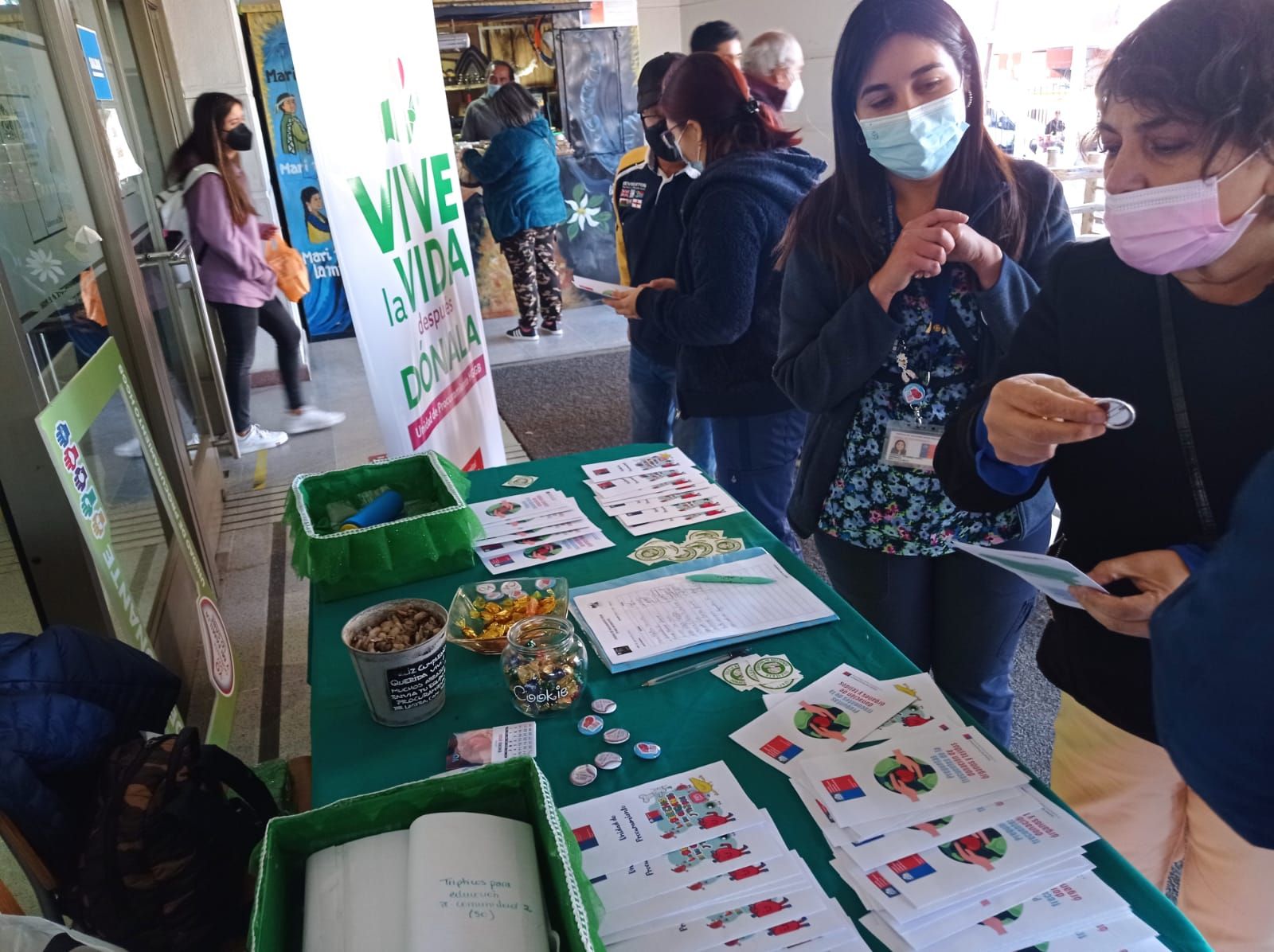“Donating organs is donating life” is the phrase that is read and heard every time there is a campaign to encourage donation in Chile. However, despite the fact that the call is made loudly every September 27, when Donor’s Day is celebrated, the national and regional figures remain low.
“At the national level, in 2021 there were 147 effective donors, with whom 355 people were transplanted, which, although it is a good number, is insufficient because there are 2,400 people on the waiting list for a transplant,” explained the local coordinator. and a nurse from the Procurement Unit of the Guillermo Grant Benavente Hospital, Constanza Rioseco.
In this context, with the support of the Faculty of Nursing of the University of Concepción (UdeC), yesterday an information stand was installed on the front of the Ambulatory Care Center (CAA) of the Regional Hospital, to detail to the attending population the importance of organ and tissue donation.
Create awareness
At the local level, from the Procurement Unit of the Regional Hospital, 12 donation communications were made, that is, 12 families were consulted about the will of their sick relative to be a donor; six refused.
As for the reasons, nurse Rioseco commented that said refusal occurred “because they did not know if their relative was a donor. Of the other six who said yes, only four were effective and the other two had to be discarded for not meeting the conditions.
Regarding those who are waiting in Biobío, “more than 90 patients are waiting for a corneal transplant, while 60 are waiting for a kidney transplant. The latter quickly need new organs, because dialysis takes between three and five hours a day, which, added to the pandemic, makes them very dependent on the hospital, which should improve.”
Rioseco explained that there is a need to change the way of thinking of citizens. “The law indicates that we are all donors and nowhere is it indicated that the family makes the final decision. However, a paradigm shift is necessary. In other countries, such as Argentina and Spain, if the person meets the criteria, they are taken to the pavilion and then the deceased is handed over to the relatives. If this were carried out, more lives would be saved, because one person can give life to 10 people.”
As for the stand, the Guillermo Grant Benavente Procurement coordinator explained that “the idea is to inform the population that when a patient is admitted to the hospital, every effort is made to help them improve and if that does not happen, when they die you can help others. We clarify that to make a donation effective, the person must be brain dead, otherwise this cannot be carried out.
In this sense, considering that out of 100,000 people, only 2% meet the criteria to be a donor, the Procurement Unit will seek to replicate the initiative each month.
“The idea is to carry out this in all the Biobío hospitals and in the UdeC itself,” said Constanza Rioseco.
–


